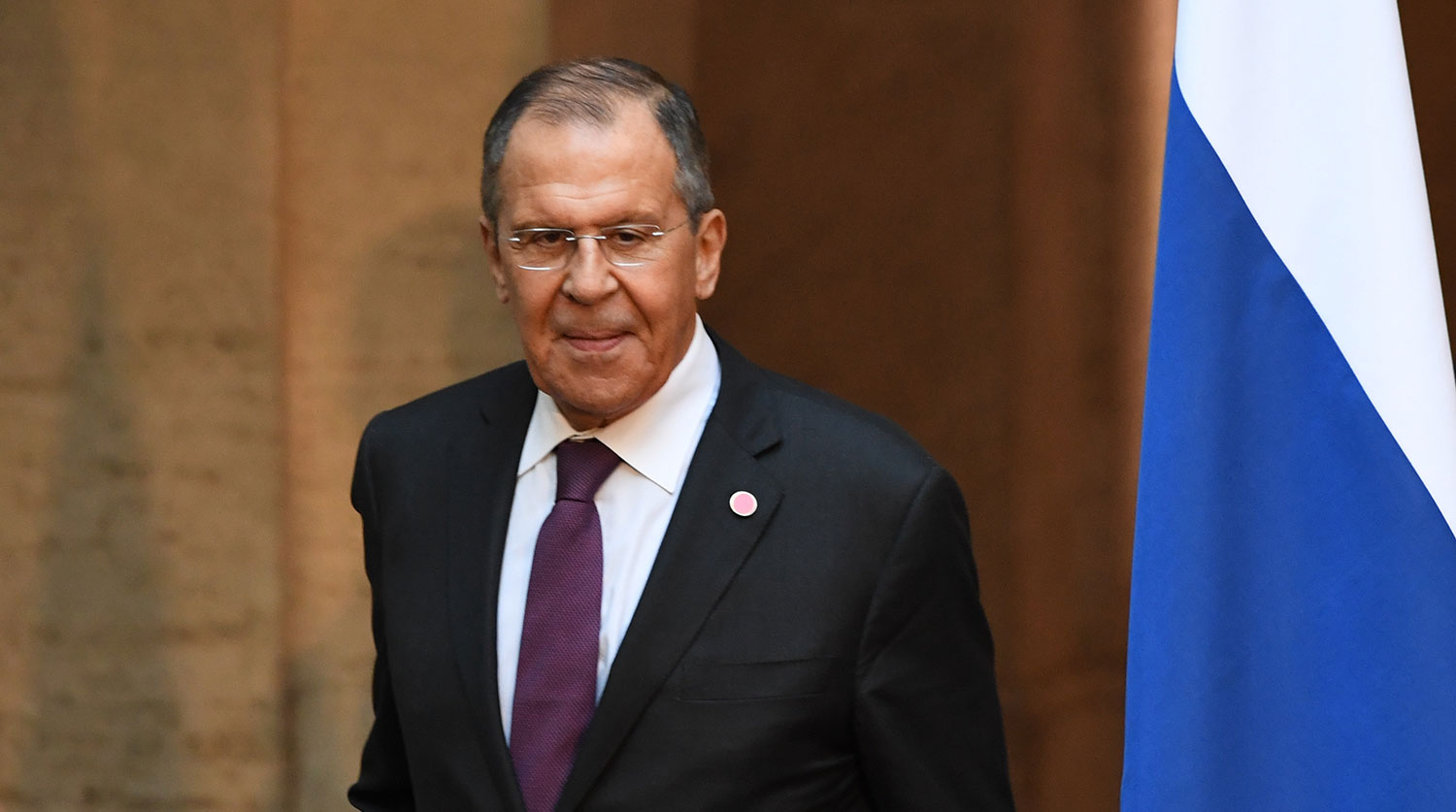Russian Foreign Minister Sergei Lavrov has held a meeting with ambassadors of Azerbaijan and Armenia amid escalating tensions between the two South Caucasus countries.
The recent flare-up in fighting and the settlement of the Nagorno-Karabakh conflict were among the main issues discussed by the Azerbaijani and Armenian ambassadors.
"The diplomats discussed issues of security in the South Caucasus, ways to stabilize the situation on the Armenian-Azerbaijani border, prospects for invigoration of efforts towards Nagorno-Karabakh settlement under the OSCE Minsk Group mediation," the Russian Foreign Ministry said on Tuesday, according to TASS.
Armenia and Azerbaijan have been at odds for years over the Nagorno-Karabakh region, which is an internationally recognized territory of Azerbaijan occupied by Armenia in the early 1990s. Tensions between the former Soviet countries escalated on July 12 when Armenian armed forces attacked Azerbaijan's Tovuz district, located nearly 200 kilometers away from the occupied Nagorno-Karabakh region.
Earlier, Russia, which is one of the co-chairing countries of the OSCE Minsk Group, expressed deep concern over the armed conflict in the region and voiced its readiness to mediate peace talks between the Caucasian rivals after fighting escalated along their shared border.
Dmitry Peskov, a spokesman for Russia’s President Vladimir Putin, said that President Putin alongside the permanent members of the Russian Security Council emphasized "the pressing need for ceasefire and [Russia’s] readiness for mediation actions" following a video conference held on Friday.
In the Minsk Group of the Organization for Security and Cooperation in Europe (OSCE), the body set up in 1992 to mediate in the Nagorno-Karabakh conflict, Russia shares chairmanship with the United States and France. However, despite the decades-long efforts conducted by the group co-chairs, the resolution process did not gain a significant pace.
Although the Azerbaijani government has been actively seeking a political solution to the conflict since the negotiation process kicked off in the early 1990s, involving international mediators from the U.S., France, and Russia under the OSCE Minsk Group, Hikmet Hajiyev, an aide to the president of Azerbaijan, considers it necessary to hold a meeting of the OSCE Minsk Group in a wide format, involving all member countries.
Speaking at a briefing on Tuesday, Hajiyev said that Azerbaijan will no longer participate in imitation negotiations, accusing Armenia of disrupting negotiation process for the Nagorno-Karabakh conflict.
"Azerbaijan does not intend to participate in imitation negotiations," Interfax quoted Hajiyev as saying during the briefing, meaning the substantive negotiations are necessary. "Armenia is trying to disrupt the negotiation process under any pretext. Therefore, we consider it important to hold the OSCE Minsk Group meeting in a wide format involving all member countries."
Along with co-chair states as well as Azerbaijan and Armenia, the Minsk Group also includes Belarus, Germany, Italy, Portugal, the Netherlands, Sweden, Finland, and Turkey.
Twelve Azerbaijani servicemen, including one general, one colonel and two majors were killed as a result of the latest confrontation, which also included artillery attacks. One civilian was also shot dead after the Armenian forces shelled Azerbaijani villages located near the border.
The occupation of Azerbaijan's Nagorno-Karabakh region by Armenia came after both nations gained independence following the Soviet Union’s dissolution in 1991. Armenia kicked off military aggression against Azerbaijan to occupy the Nagorno-Karabakh region. The full-scale war lasted until a ceasefire deal in 1994. As a result of the bloody war, Armenia occupied 20 percent of Azerbaijan’s internationally recognized territories – the Nagorno-Karabakh region and seven surrounding districts. The war claimed the lives of 30,000 ethnic Azerbaijanis and displaced one million others from their homeland.
In 1993, the United Nations Security Council adopted four resolutions demanding the immediate withdrawal of the occupying forces from Azerbaijani lands and the return of internally displaced Azerbaijanis to their ancestral lands. All four legally binding documents go unfulfilled by Armenia to date.







 Armenian sappers commenced on Monday mine-clearance operations in the territories adjacent to the Saint Mary Church in village of Voskepar (Armenia...
Armenian sappers commenced on Monday mine-clearance operations in the territories adjacent to the Saint Mary Church in village of Voskepar (Armenia...
 Russian Foreign Minister Sergei Lavrov has reasserted that Moscow has no intentions to stop the fighting in Ukraine, even if peace talks commence.
Russian Foreign Minister Sergei Lavrov has reasserted that Moscow has no intentions to stop the fighting in Ukraine, even if peace talks commence.
 Iran has refuted reports of alleged damage to Shimon Peres Negev Nuclear Research Centre located southeast of Dimona, Israel, during the recent air...
Iran has refuted reports of alleged damage to Shimon Peres Negev Nuclear Research Centre located southeast of Dimona, Israel, during the recent air...
 Iran and Pakistan have signed eight cooperation documents in various fields, and agreed to strengthen ties to fight terrorism in the region.
Iran and Pakistan have signed eight cooperation documents in various fields, and agreed to strengthen ties to fight terrorism in the region.



